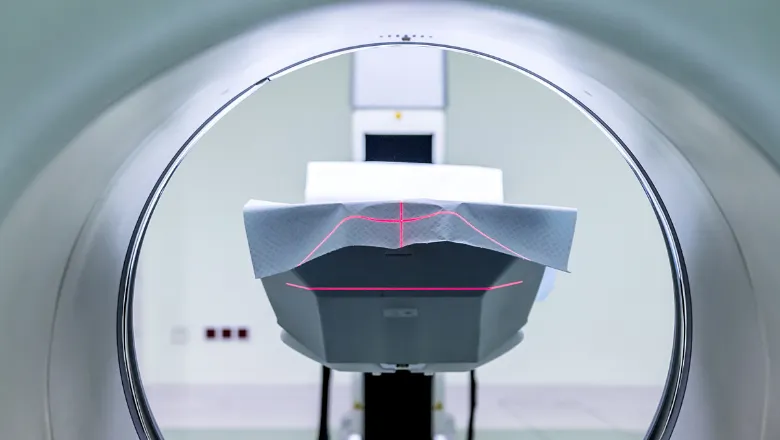We developed two polygenic risk scores, one for European-descent patients and one for east Asians. These worked best in the populations for which they were developed, and both worked reasonably well in Turkish and Iranian populations.
Professor Matt Brown, School of Basic & Medical Biosciences
07 July 2021
Genetic test shows promise in discriminating cases of chronic back pain
Polygenic risk scores have been shown to possess a high discriminatory capacity for cases of chronic back pain caused by inflammatory arthritis and could be of clinical utility in early diagnosis.

Approximately 1.5% of European-descent adults have chronic back pain caused by inflammatory arthritis, called axial spondyloarthritis. Up to 30% of adults under 45 years of age have axial spondyloarthritis. Where this can be detected by radiographs, it is called ankylosing spondylitis. The management of this type of arthritis is different to other forms of chronic back pain, in that it responds well to treatments which suppress part of the immune system, but not to simple pain killers, rest or surgery.
However, the diagnosis of axial spondyloarthritis is often delayed, as it only causes a minority of cases of chronic back pain, physicians fail to consider it. On average, it takes seven to 10 years from the onset of symptoms before the correct diagnosis is made. Therefore, having an easy screening tool to detect the disease earlier would be valuable.
Ankylosing spondylitis has no known specific cause, though research has shown more than eight out of 10 people with the disease carry a particular gene known as human leukocyte antigen B27 (HLA-B27). A polygenic risk score is a simple measure of an individual’s heritable risk of developing a disease such as ankylosing spondylitis.
In a recent study, a team of researchers led by Matt Brown, Professor of Medicine in the School of Basic & Medical Biosciences and Director of the National Institute of Health Research Guy’s and St Thomas’ Biomedical Research Centre, sought to test the hypothesis that polygenic risk scores have strong capacity to discriminate cases of ankylosing spondylitis from healthy controls and individuals in the community with chronic back pain.
Using the findings from large studies involving over 15,000 ankylosing spondylitis cases and 20,000 healthy controls from different countries (including patients of European-descent and from east Asia, Turkey and Iran), the researchers found that the polygenic risk scores developed proved to be an effective method for distinguishing people with the disease from healthy controls.
He continued: “In all populations, they worked better than MRI scanning, or currently used blood tests for the single gene HLA-B27, or the measures of inflammation, C-reactive protein or erythrocyte sedimentation rate.”
The test’s performance indicates that it should replace current initial screening methods for axial spondyloarthritis in patients presenting with chronic back pain. This will enable those suffering to be diagnosed and treated earlier, reduce the diagnostic odyssey for patients and the cost to the health system involved, as well as help avoid misdiagnosis.
More studies are required to see how well the test performs when used in chronic back pain clinics, but the test is ready for implementation in practice and should replace the HLA-B27 test, which is amongst the most widely used genetic test worldwide.
Professor Matt Brown, School of Basic & Medical Biosciences

